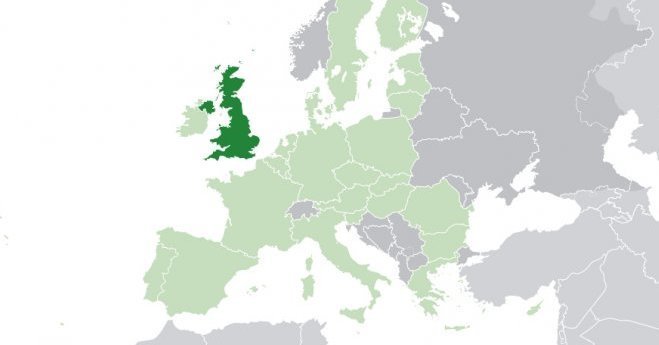The times are dark for the European Union. Last 23rd January, David Cameron announced to hold a referendum during 2015 in order to allow the Britons to express the relations they wish to see established between the United Kingdom and the European Union. The idea animating the links that follow, are not residing in a political strategy analysis behind this choice. The tightrope balancing of Cameron and his speech have largely been commented, analysed, dissected. Maybe even too much, as the main vision and intrinsic content of the speech of the Prime Minister had been announced earlier.
Indeed, the possible exit of the United Kingdom in 2015 raises other questions: What are the consequences of an exit of an EU Member State?
Would it be possible, and especially would it be desirable in the case of certain Member States? Is a Europe at different speeds an optimal solution to assure the continuity of the functioning of the European Union at one hand and the continued enlargement to a growing number of competences on the other hand? This list is not exhaustive, but it is desirable to be interested in it. Voluntarily, a little non-objective and refutable reflexion.
The exit of a Member State: a nightmare?
The sovereign debt crisis through the Irish, Spanish, Portuguese and especially Greek case and lately thus, the announcement of a referendum by David Cameron, have added new episodes to a long series of episodes within the European construction: the fear to see a Member State leaving the European Union. In fact, the idea to see a Member State leaving the European ship, especially in these times of structural European crisis, makes more than one shudder.
Would the exit of a Member State be that catastrophic for the European project? It is clear that the exit of a Member State would have a considerable and detrimental impact on the symbolic level since it would imply in some sense the failure of the European project. Yet such an analysis is biased. The scope of the failure will affect proportional to its causes. An exit with its origins in a lack of solidarity, especially economical between the member States, as it is the case in Greece nowadays, would be a real failure since it would be the values of the European project itself that would be repressed.
However, the exit of a Member State, solely on a political basis, like what is happening at the moment in the United Kingdom that considers the perspectives and orientations of the European project no longer fit its own definitions would not pose any major problems. The European Union and the Member States would adapt, more or less difficult, while the country taking the decision to exit must fully assume the consequences of this choice. But the interests of the United Kingdom are not going in the direction of an exit and David Cameron is fully aware of it.
« Europe at different speeds »? Very well!
The current orientations of the European Union, pushing more and more for the creation of a Europe at different speeds, do not form and should not form a major problem. Moreover, the existence of a particular political process enabling Member States to determine their degree of implication and integration within the different European political projects should also not form a difficulty.
Even if it slows down the deepening of the European integration in certain areas or key sectors, the possibility to determine the degree of integration shouldn’t be a major source of dispute if it does not block the process of integration as a whole. It is clear that it would be desirable that the degree of integration would be the same for the 27 Member States and that they agree concretely on the future orientations, particularly that what concerns the degree of federalism they wish to give to the European project. But it is utopist to think this is possible. The historical heritage as well as the political, social and economic concepts makes that it currently impossible for the states to agree.
The existence of a Europe at different speeds is not in itself an evil to the extent it allows to certain Member States to implement deeper integration. The Euro zone is a perfect example. Who could complain that these 17 Member States have been able to establish such a degree of economic, fiscal and monetary integration? Who could complain about the premises of federalism that are starting to appear within the Euro zone?
Who could complain of the existence of cooperation that allowed lately to a dozen of states to agree on the implementation of the Tobin tax? A Europe at different speeds is therefore not an aberration in itself. These are necessary steps in light of the current political situation in the various Member States. It would be desirable that convergence takes place over the long term. And, states such as the United Kingdom, who have decided to stay on the side of the road and don’t want to invest more deeply in the process of integration, should not be surprised to pay sooner or later the consequences of such political decisions.
The announcement by David Cameron of the organisation of a referendum during 2015 poses various questions regarding the current functioning of the European Union and highlights certain structural divisions regarding the concept that some Member States have of the European project ; these divergences of concept are inherent to the history of the European construction. This referendum brings the debate on other more important problems for the future of the European Union than the simple analysis of a political strategy orchestrated by a British Prime Minister in order to ensure his re-election.

Follow the comments: |
|
